Trump's AI Action Plan: Observations
I'll take it
This is a totally functional document with a surplus of creative ideas. It feels like it comes from a parallel universe of a White House that didn’t also roll out DOGE and the most chaotic trade policy in US history. But I’ll take it!
Let’s jump in.
Isn’t declaring any model to objectively reflect truth is itself a social engineering agenda? I’m happy to see government encouragement for Chinese model evals, something we’ve been doing at ChinaTalk since early 2023!
Nathan Lambert and I have been banging on of late about the dangers of America ceding the open source landscape to hungry Chinese firms. It was encouraging to see this issue get pride of place in the document, coming in as the third subsection after traditional Trumpy concerns around red tape and free speech. Now that Zuck’s done with open source and we’re selling H20s to China, it will take real change to the status quo for an American model to out-compete what well-funded Chinese startups and established firms like a 300bn market cap Alibaba can deliver. Either USG needs to invest 9 figures to relevant nonprofits like Ai2, frontier American labs need to believe in the business use case to open source leading models, or the government needs to make them do so.
Oh, and this bit was weird…if “Advanced AI compute is essential to the AI era…Denying our adversaries access to this resource, then, is a matter of both geostrategic competition and national security,” why exactly are we selling H20s to China?
Enable AI Adoption
I recorded a show this morning with the legendary Richard Danzig discussing his excellent new paper ‘AI, Cybersecurity and National Security: The Fierce Urgency of Now’. His conclusion ran as follows:
The White House’s AI adoption section encouragingly echoes some of these themes, but I would give the section below a “we hit the alarm and are still rubbing our eyes” as opposed to full “get out of bed” rating.
ChinaTalk’s ongoing AI and semiconductor coverage can read as a living AI net assessment, so it’s exciting to see more orgs getting encouraged to jump in. Given how important the private sector is to national security AI competition (see this later riff on the ‘break glass and commandeer datacenters in case of emergency’ bullet below), these net assessments should pay at least as much attention to public AI developments as PLAN vs USN implementation plans.
It might be nice to still have an active Office of Net Assessment to lead and share lessons on how to do this work well.
The IC does not have a good institutional home or the muscle memory to do emerging technology net assessment particularly for comparing red vs blue dual use technologies. Here’s the best paper laying out different structures to execute this work, and a pod we did on it.
Hurray for FROs! We’ve come a long way from the show we did with Adam Marblestone back in 2021!
Journalists should be asking agencies and the White House weekly what models they have access to on their work computers. If Trump is leaning so hard into deregulation, how hard can this really be?
The US government is going to want to commandeer private sector cloud resources in the event of a US-China conflict. But there’s nothing today preventing the sort of pre-placed drone attacks we’ve seen this year by Ukraine to Russia and Israel to Iran from happening to datacenters in Virgina.
It’s cute seeing the NSC get assigned some work when Loomer got its entire staff fired a few months back.
Good to see multilateral orgs getting a shoutout but hard to take seriously when Rubio just fired dozens of staffers who work these very portfolios.
I feel some type of way about selling China H20s and disagree with the White House’s conclusion that building datacenters in the UAE is better for America’s long term national power trajectory than husbanding chips. But even Ben Thompson gets that selling H20s only makes sense if you lock down semicap export controls. While nothing substantial has happened on this front seven months into this administration, it’s encouraging to see a policy document call out this side of the controls. We discussed the importance of subsystem controls at length with Dylan on ChinaTalk and in this SemiAnalysis post.
Trump 2 has revealed how it scared it is of China’s rare earths controls and that it’s willing to cave on chip controls that Presidents traditionally held the line on being a national security initiative not up for debate or linkage. The Times reported yesterday that “officials throughout the government say the Trump administration is putting more aggressive actions on China on hold, while pushing forward with moves that the Chinese will perceive positively. That includes the reversal on the H20 chip.” A Trump administration that’s prioritizing a visit to Beijing and trade deal will not be pushing hard on SME. My guess is at this point it will take a national security-adjacent shock along the lines of a balloon to change the trajectory of Trump’s China policy.
Lastly, who gets the licenses to buy H20s in China still an open question. Commerce presumably will try to pick the most civilian-y companies, but the ones that get the H20s will certainly be receiving calls to help out the national security establishment. The new CIA history The Mission by Tim Weiner relates an anecdote that “the MSS gave [the SF86 hack] data to Alibaba, who crunched it all in 90 days. Then the MSS integrated the intelligence on people it suspected to be CIA officers with passport records and biometric data stolen from immigration kiosks.” This Foreign Policy article has more color and also implicates Baidu, Huawei, Tencent and Bytedance. What happens when the IC gets wind of another civ-mil fusion partnership that leverages Nvidia’s best chips?
West Point in the 19th century was America’s leading engineering institution. Today it has a statutory ceiling for salaries at $225k a year. Without real money and new pay scales, we will not grow military colleges into centers of AI excellence.
And speaking of attracting talent, there was zero discussion of immigration policy, a pretty damning insight when Zuck has shown that the best team money can buy is 3/4 1st generation immigrants.
Why was this not called the Lewis and Clark Initiative? Sounds sick regardless.
Overall, I’m giving this plan a grade of “would be real nice if it happens”, one tick above “too good to be true.” Hopefully most of what’s in this document is not salient enough to allow whoever did the good work of pulling it together too much headache in implementation.

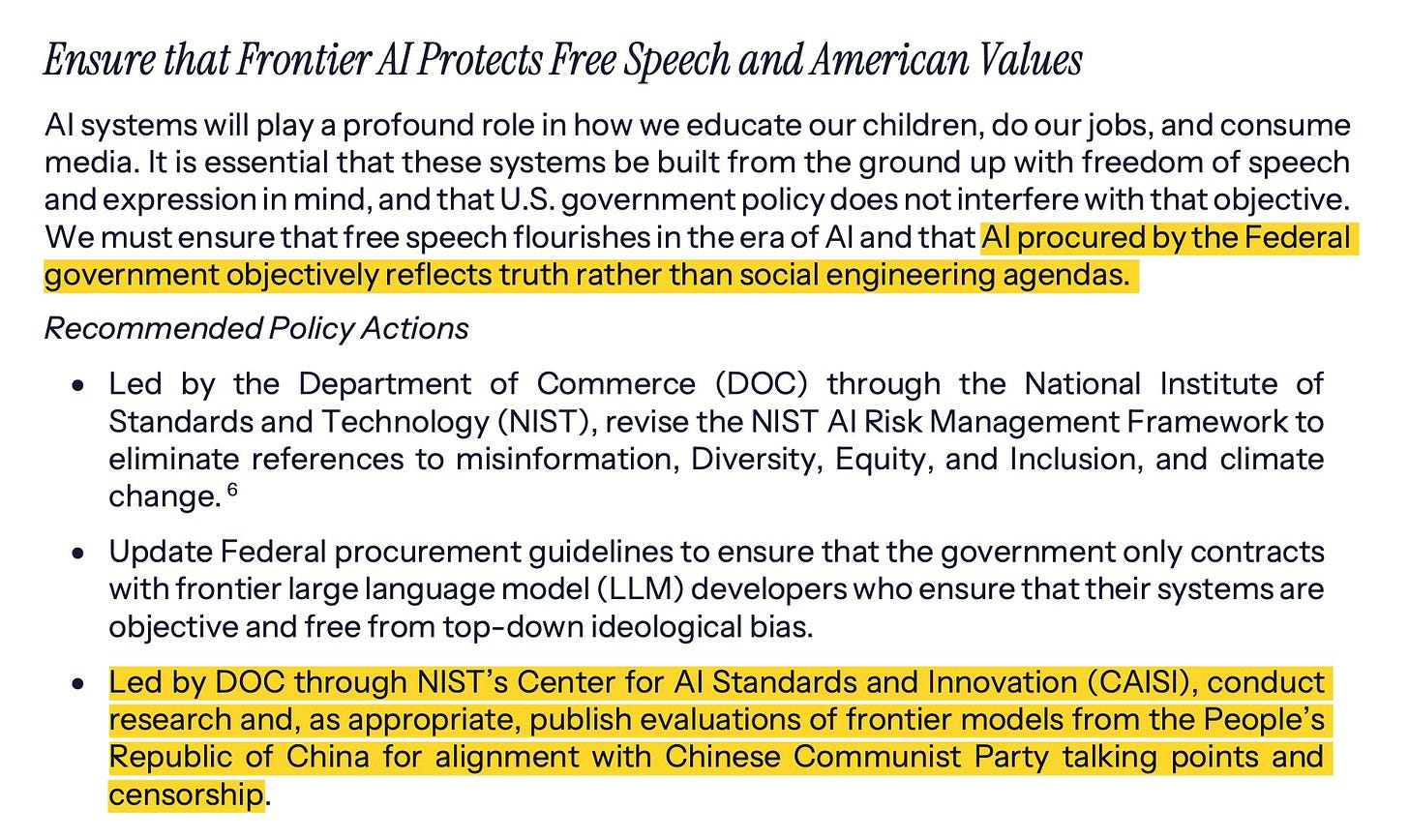
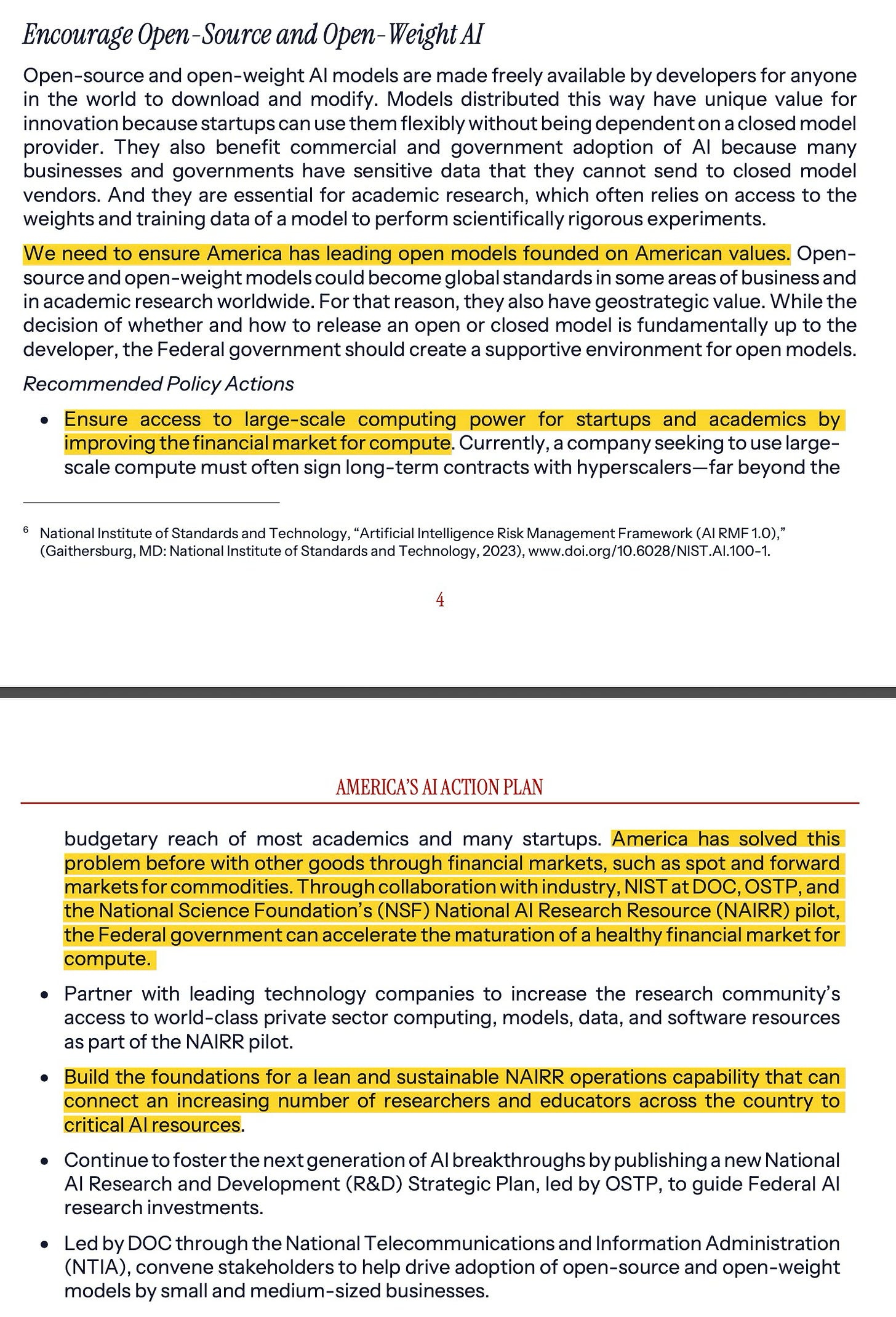
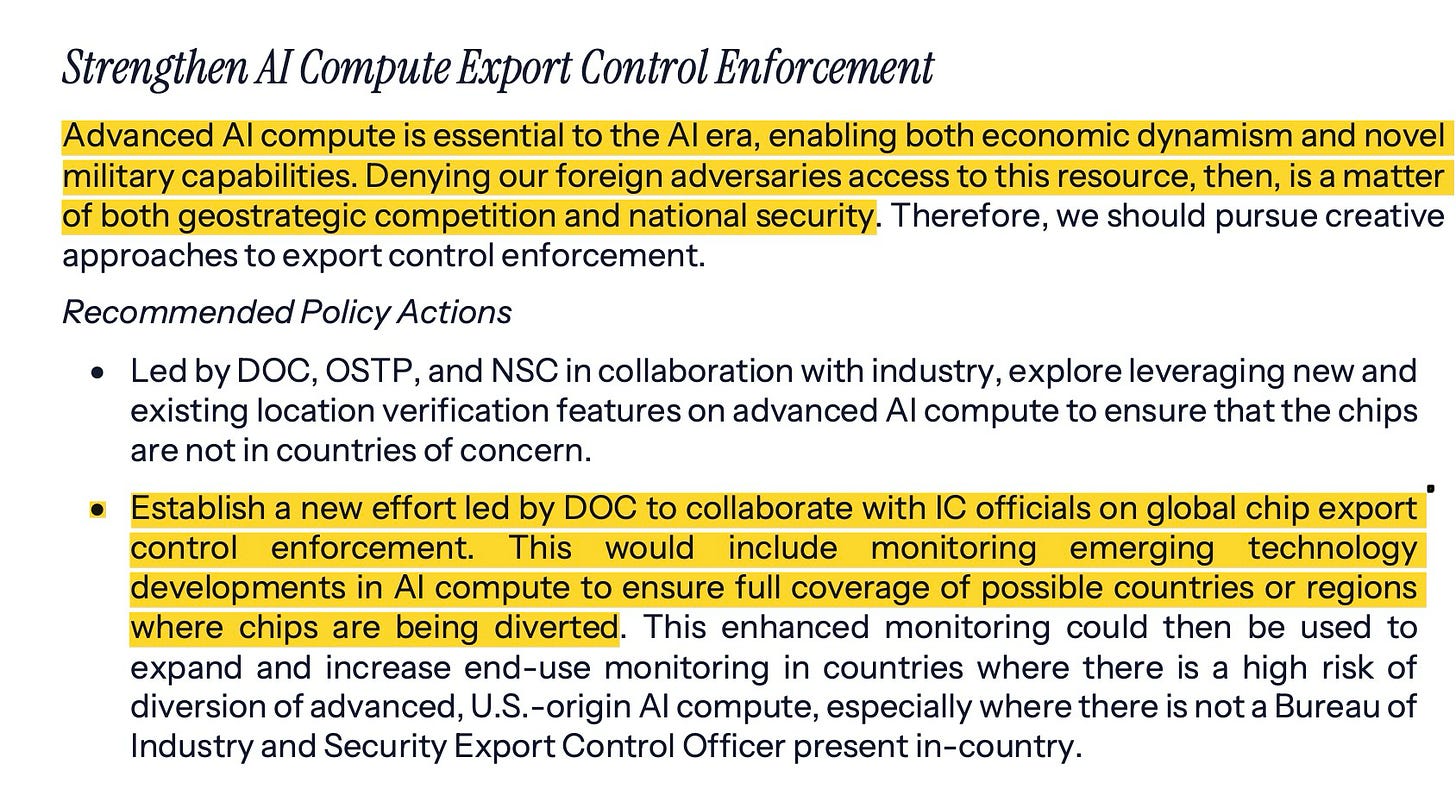
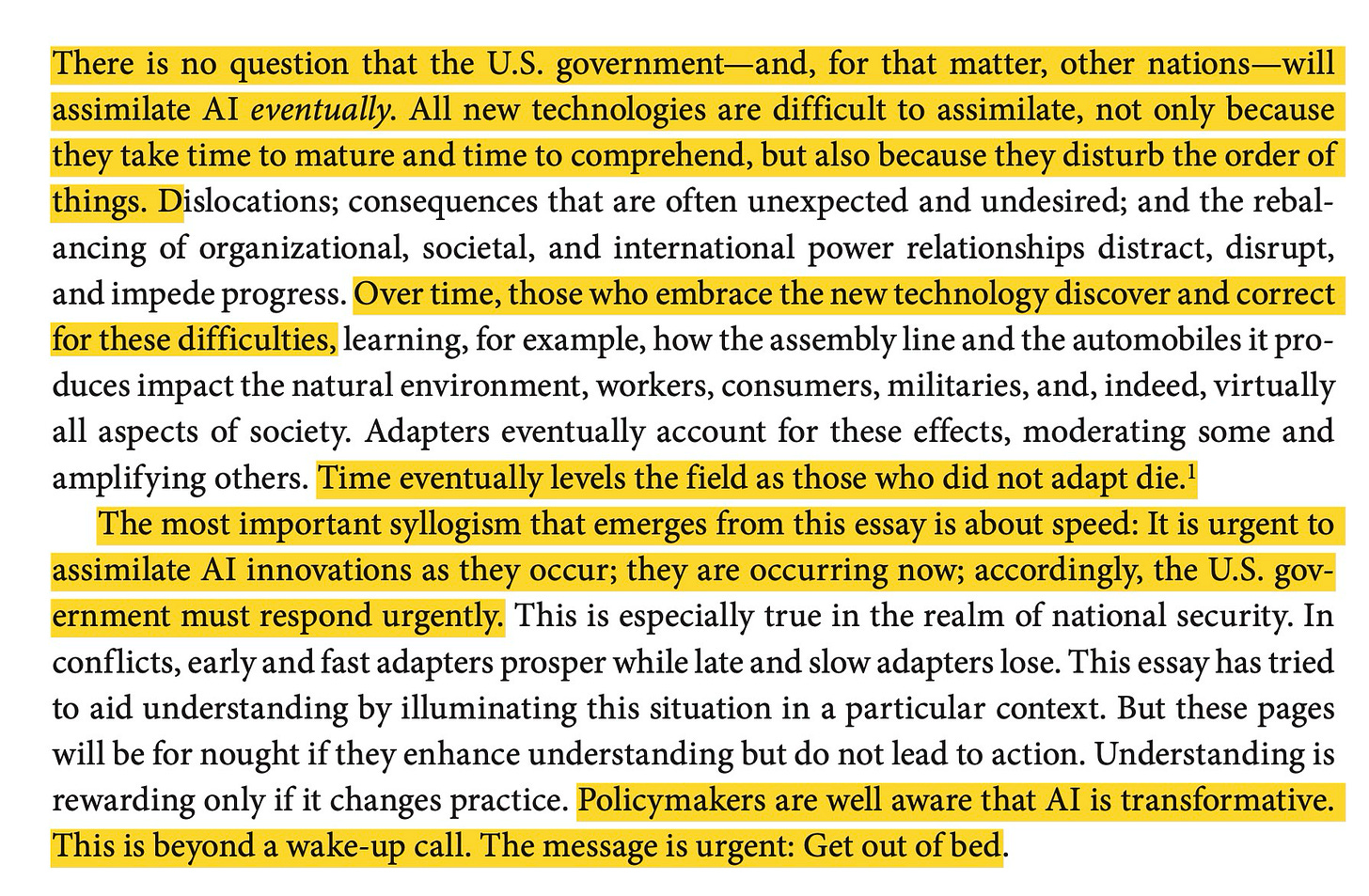
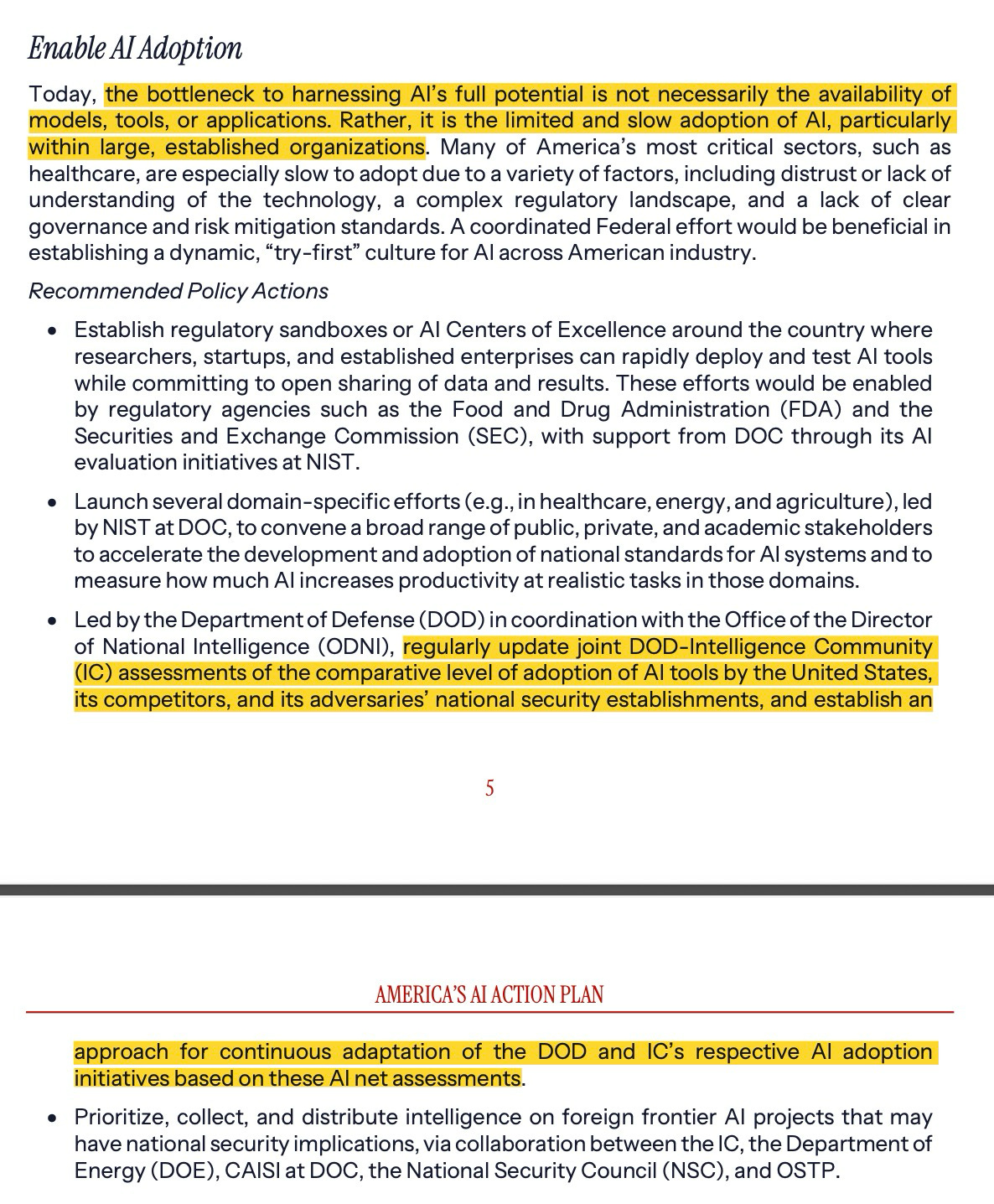


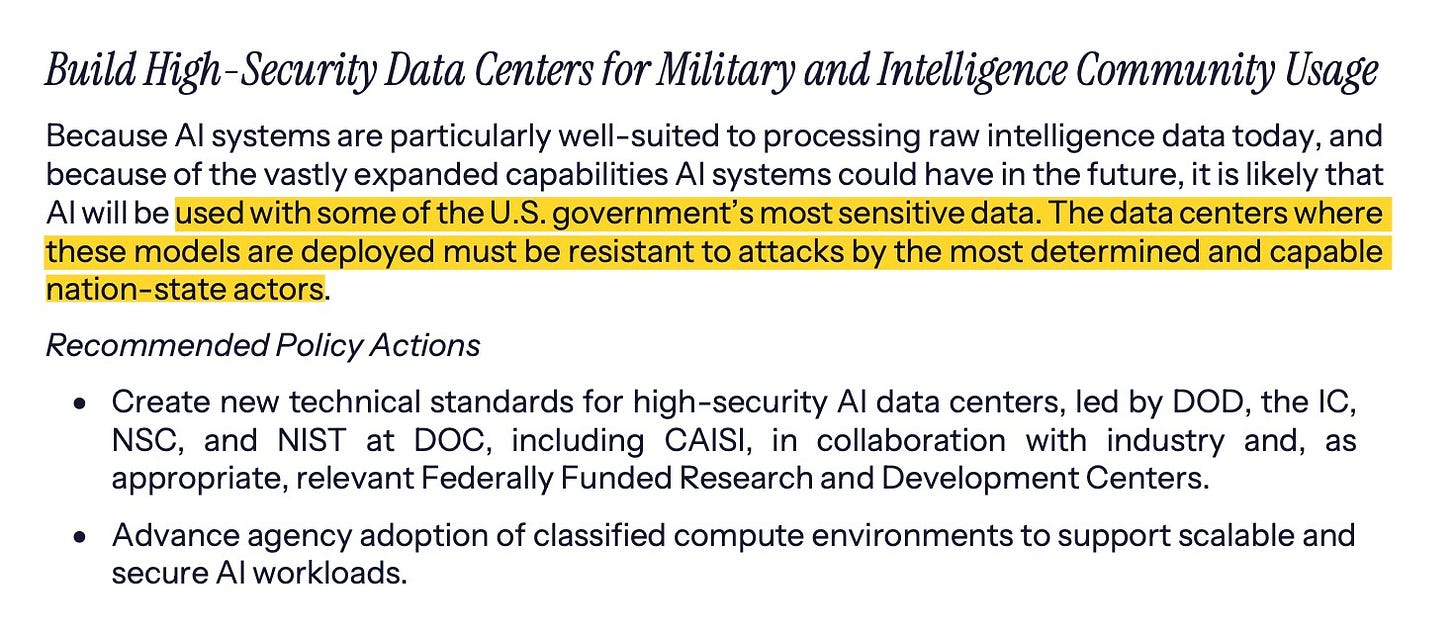

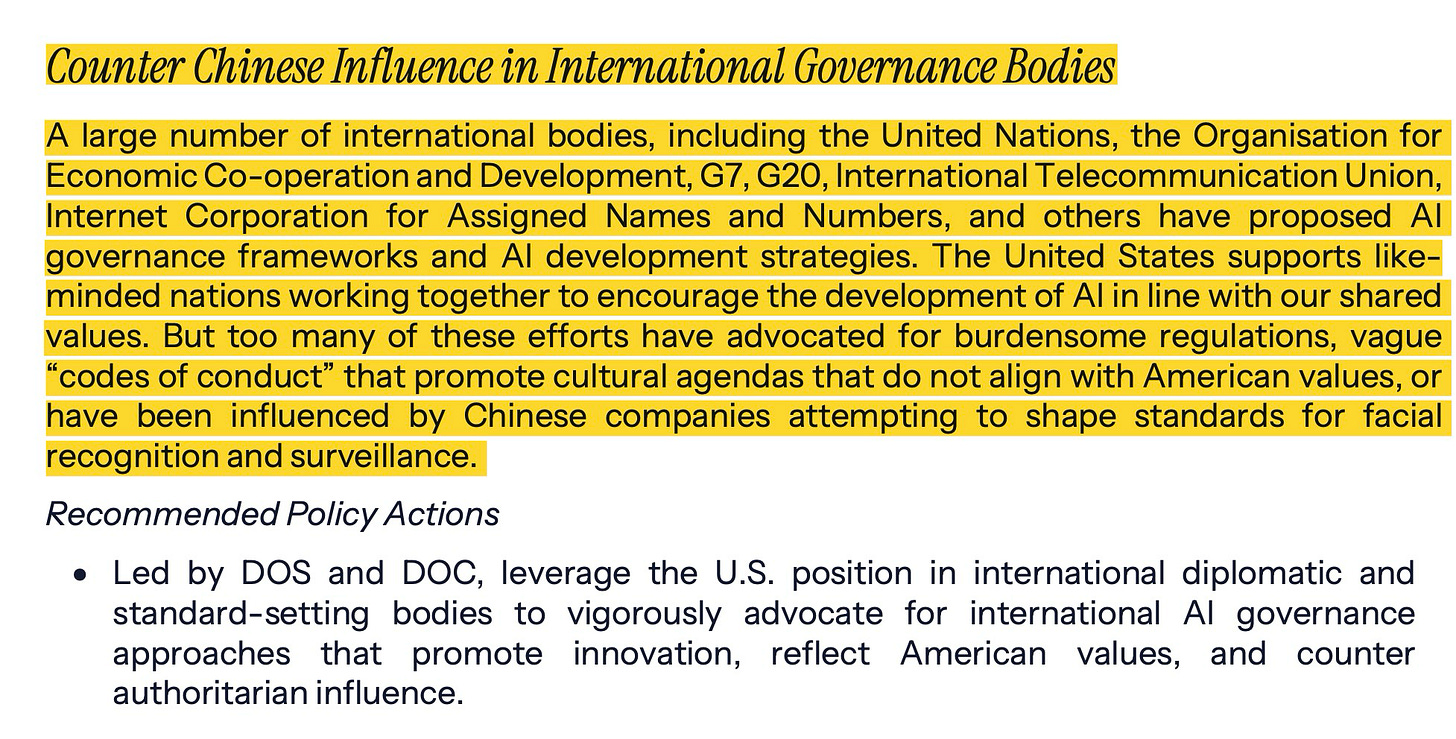
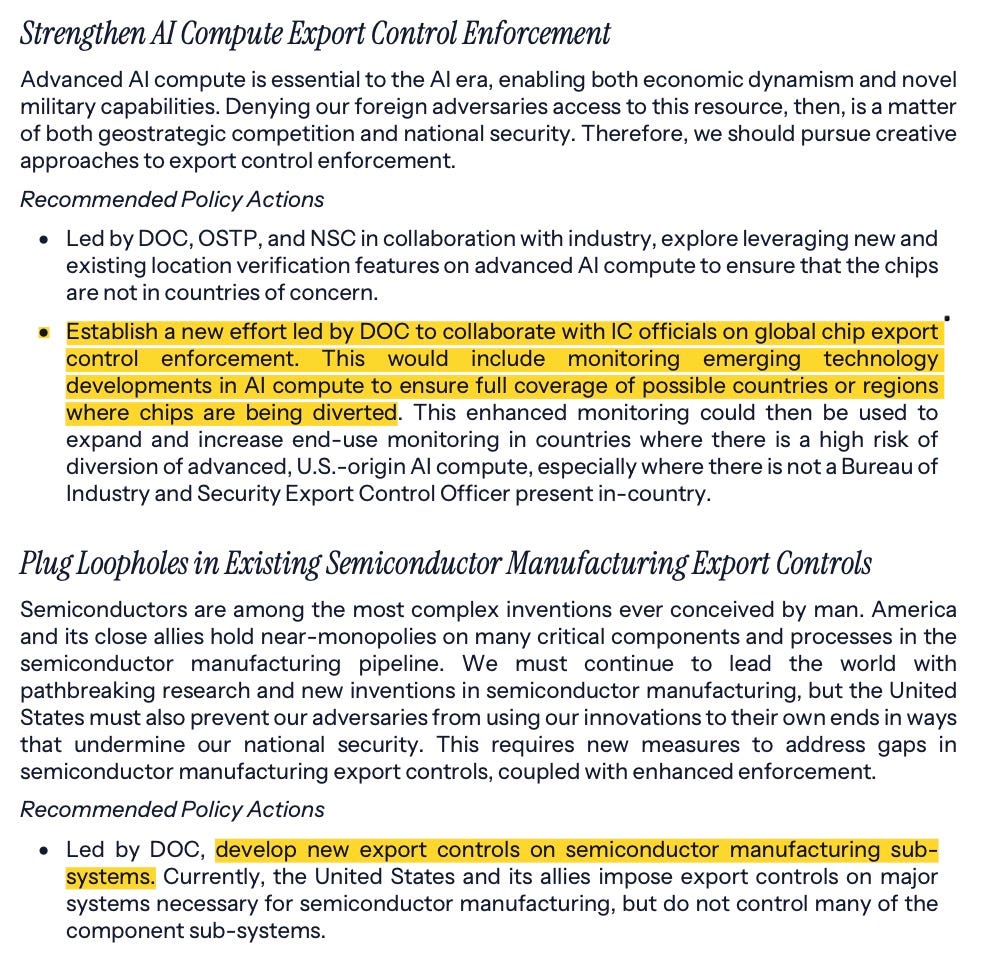


This plan would be easier to implement if we made giving visas to highly skilled immigrants from China and India easier. IMO.
Why is everyone so cute and quick with words? Are there investors here, or is this a club for people with no lives, and nothing to do?
Get to the point, or the lack there of. You said absolutely nothing of value here. Congratulations.